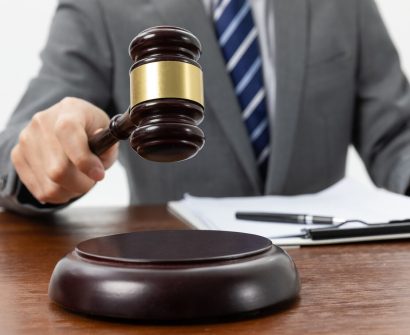
The doctrine of necessity is a contentious but fundamental concept in the discipline of legal practice and theory. The concept of necessity, which is often employed as an option of last resort when maintaining rigorous legal requirements seems impractical or unachievable, allows behavior that would normally be considered illegal or antithetical to established norms. The practical use of this theory, however, calls into serious consideration how to achieve a balance between moral requests, legal requirements, and the preservation of social order.
Doctrine of Necessity
- Section 81 of the IPC contains the doctrine of necessity.
- This section belongs to the general exceptions portion of Part IV of the IPC.
- Section 81 addresses actions that are likely to cause harm but are carried out with good intentions and to stop further harm. It claims that:
- If anything is done in good faith to prevent or avert further injury to people or property, without any criminal intention, even if it is done with the knowledge that it is likely to cause harm, it does not constitute an offense.
- Justification: In this situation, it is a factual matter whether the harm that needed to be stopped or avoided was so serious and immediate as to warrant taking the risk of carrying out the act knowing it would probably result in harm.
Common Law Doctrine Of Necessity: History
- This common law theory has its origins in the writings of medieval jurist Henry de Bracton, who wrote in the 13th century that what is ordinarily unlawful becomes lawful by necessity.
- This remark literally means that people in positions of authority are permitted to do things that are generally illegal in certain circumstances.
- In the case of Gullapalli Nageswara Rao v. APSRTC (1958), this theory was applied.
The Doctrine Of Necessity: Conditions for Defense
- An urgent threat must exist as the first requirement for the defense of necessity. There must be a serious and immediate threat, and the only way to avert the harm short of breaking the law must exist. There could be a financial, psychological, or material risk.
- The second requirement is proportionality. The benefit of not breaking the law must exceed the cost of doing so. The defence will not be accepted if breaking the law will cause more harm than it will prevent.
- This brings us to the third requirement: there must be no other feasible option. The defendant must not have had any other reasonable way to prevent the harm.
Doctrine Of Necessity In Criminal Law: Exceptions
- The Latin dictum Nemo Judex in causa Sua, which states that no one should judge their own case, is broken by this notion.
- This maxim states that an authority can be dismissed based only on prejudice.
Doctrine Of Necessity Case Law
- In the case of J. Mohapatra and Co. and Anr. v State of Orissa and Anr, the court clarified the application of the doctrine, which states that it is the essential responsibility of an authority to make a decision in a case when no other authority or judge is present and that it covers judicial, quasi-judicial, and administrative issues.
- In the case of Rex v Bourne, five soldiers raped a fourteen-year-old girl, which resulted in her becoming pregnant. The gynecologist was the defendant. With the girl’s parent’s permission, he carried out an abortion because he thought the rape victim might not survive if she was allowed to give birth. Upon considering the case’s facts, the court found the defendant not guilty of the crime of forging a false pregnancy certificate. Because the defendant carried out his gynecologist duties in good faith, the court ruled him not guilty.
- In the case of United States v Holmes, the case’s facts stated that some of the passengers were ejected from the boat by the crew in order to keep it from sinking, which included 65 passengers and 17 crew members. In the course of the proceedings, the court determined that the act could be justified as a defense against criminal homicide because it was carried out of necessity.
Emergency Powers and Necessity
- In cases of emergency, emergency powers call upon legal authority.
- The Necessity Doctrine encourages actions taken to prevent more damage.
- Both offer adaptability, yet they are both restricted by the constitution.
- They achieve a balance between accountability and the necessity of immediate action.
- Sometimes it involves a brief suspension of rights, supervised to guard against unwanted misuse.
- They are regulated by human rights as well as proportionality principles on an international level.
The basic principle of “Nemo judex in causa sua” is not applicable to the notion of necessity. The concept states that an authority may be dismissed based alone on prejudice. When the doctrine of necessity is applied, it serves as a defense even in cases where the law is broken, rendering the verdict impartial and legitimate. The doctrine, however, is only applicable in specific circumstances; in other words, if it is not applied, the case will be closed off completely, which would be more harmful.
Doctrine of Necessity FAQs
What is the general principle of necessity?
Three interrelated components comprise the concept of necessity: the obligation to employ non-violent methods wherever feasible; the obligation to reserve the use of force for lawful purposes; and the obligation to employ the least amount of force that is reasonable under the circumstances.
What is the exception in the doctrine of necessity and the doctrine of absolute necessity?
When something is absolutely necessary, the situation gets so bad and urgent that there would be no way to make things better even if there were alternatives. The idea of necessity, however, is a limited exception to the natural justice precepts. It is only used when there are really few options and no alternative sensible course of action.
What is the standard of necessity?
A real and present danger of death or severe bodily harm is one of the components of the defense of necessity. the possibility of injury larger than the defendant’s actual damage. There was no other reasonable, less detrimental option but to take action.
What is the legal maxim for necessity?
The well-being of the people is the supreme law, or salus populi suprema lex, is the foundation upon which necessity rests. When a defendant claims necessity, he usually argues that he committed the act to prevent a larger evil brought about by natural forces.
What is the doctrine of strict necessity in India?
Under the doctrine of necessity, certain laws may be suspended or eased in emergency situations or other dire situations.
What is the necessity of general exceptions?
Even if an act has the potential to inflict harm, it is not illegal to perform it in order to stop a bigger harm from occurring. An individual may be released from criminal culpability under the doctrine of lesser harm or necessity, provided that the harm prevented was noticeably greater than the harm sustained.
What is legal necessity?
Any necessity that is supported or justified by the law is considered a legal necessity. This idea has developed as a synthesis of Kutumbarthe and Apatkale. In terms of the joint family, it refers to a legally justifiable requirement with regard to both its members and its possessions.
Who has to prove legal necessity?
The burden of demonstrating legal need may be met by the alienee by demonstrating actual necessity or by demonstrating that he conducted appropriate and sincere inquiries into the necessity’s existence and that he took all reasonable steps to ensure that it existed.
With the goal of giving students the best coaching available for law entrance exams including the CLAT, AILET, and various other numerous state judiciary exams, Jyoti Judiciary Coaching, India’s Finest educational Platform, was established. Come enrol now with Jyoti Judiciary!
For any latest news, legal topics, judiciary exams notifications, patterns, etc watch Jyoti Judiciary’s YouTube channel for legal videos for any updates at https://youtube.com/@jyotijudiciarycoaching4852?si=2cwubh9d2A9urwJf









